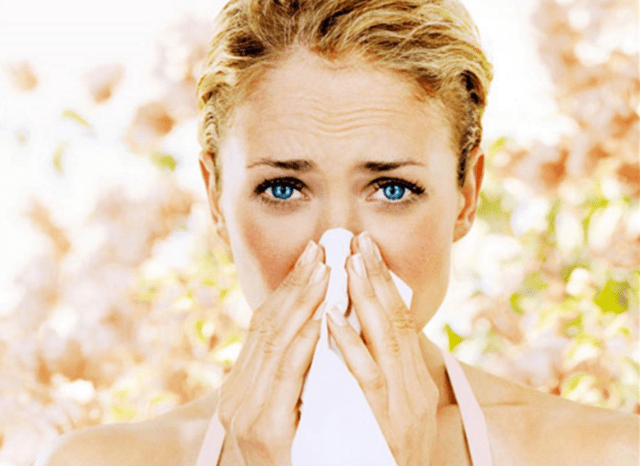Allergy season is in full swing this year, and with a vengeance. With pollen levels reaching new highs, your allergies may have felt worse compared to recent years. If that’s the case, make sure you hit the gym a few extra times because guess what? Aside from all the other factors you have to consider when fitting into your skinny jeans, now allergies have been shown to cause weight gain.
Here are five ways your allergies are making you fat!
Terrible Sleep
One of the most common complaints from allergy sufferers is a poor night’s sleep. After several nights of terrible sleep, you may start suffering from daytime grogginess and irritability. And, if you’ve ever gone a day or two without sleep, you may have noticed that you get much hungrier, much faster. So you may be eating more without even realizing it.
Not only that, but this no-sleep issue can become a vicious cycle to escape from: allergies impact the quality of your sleep, and poor sleep results in a weakened immune system, which in turn makes your allergies worse, which makes you nosh even more!
Antihistamines Make You Hungry
If you’ve taken any allergy medication that contains antihistamines, you may or may not have noticed your appetite suddenly spike. Researchers from Yale University conducted an experiment on mice that revealed giving mice histamines reduces their hunger, while giving them antihistamines greatly increased their appetite. When tried on human subjects, similar results were produced.
You’re Dehydrated
Yes, drinking plenty of fluids can help reduce the severity of your allergy attacks. Not only will it keep your body well hydrated, but it will prevent your brain from confusing thirst with hunger, which would result in unnecessary eating. However, make sure you are drinking healthy fluids – especially water – instead of fattening or dehydrating drinks such as coffee, sodas, and artificially flavored drinks.
Food Allergies You May Not Know Of
Aside from the serious allergic reactions to things like peanuts and seafood, more common is the less severe, low-grade food allergy. You may be allergic to certain foods without even realizing it, and the symptoms may not be apparent. After ingesting these foods over an extended period of time, your body’s immune system becomes weakened, which can lead to constipation, weight gain, and inflammation. Then that inflammation can lead to more weight gain, gastrointestinal diseases, and more. Pay attention to how you feel after eating each meal – if you notice your energy rapidly decreasing or your hunger coming back quicker than usual, you may have eaten something you’re allergic to.
Staying Inside
This might have been the obvious choice; how often have you decided to stay inside because of allergies? You see it all the time on the allergy medicine commercials! But by staying inside, you are probably cancelling plans to visit the gym, go for a run or jog, play some sports, play with your kids, and so much more. Avoiding outdoor physical activity, staying inside and relaxing more will create the perfect storm for weight gain: lack of exercise, extra trips to the fridge, and becoming a couch potato. If you do have to stay inside, try using free weights and doing cardiovascular exercises that don’t require much room, such as walking up and down stairs.
Insider’s Health Exclusive –>>: Click Here to Find out The ONE “Weird Trick” that reduces your terminal disease risk by OVER 70% (and NONE of us are doing it)
Cited Sources
Boris, Laurie. “Why and How Allergies Can Make You Tired.” Web log post. For the Health of It. Web. 13 June 2012. <https://laurieonhealth.wordpress.com/allergies/why-and-how-allergies-can-make-you-tired/>.
Hyman, Mark. “How Hidden Food Sensitivities Make You Fat.” DrHyman.com. 22 Feb. 2012. Web. 13 June 2012. <https://drhyman.com/blog/2012/02/22/how-hidden-food-sensitivities-make-you-fat/>.
Main, Emily. “Are Your Allergies Making You Fat?” WomensHealthMag.com. Women’s Health Magazine. Web. 13 June 2012. <https://www.womenshealthmag.com/health/allergy-side-effects?page=1>.









